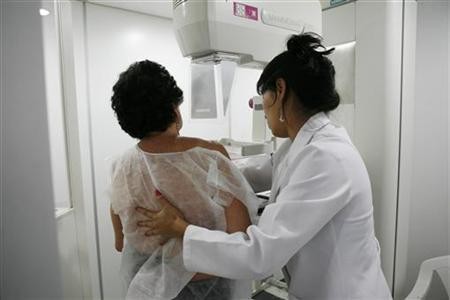China’s health authorities will start offering free screenings for cervical and breast cancers in 11 provinces and municipalities as part of the expansion of their national program of providing cancer screening services for women, according to an announcement on April 22.
The health officials will also unveil an investigation and research regarding the public's awareness on breast cancer.
While in previous programs, the services centered on impoverished women in remote and rural regions, the government will now also include laid-off and migrant women with an urban population of over 50 million.
With the expansion of the campaign, the officials are optimistic that they could reach more of this vulnerable group.
Co-organized by the National Health and Family Planning Commission (NHFPC) and All-China Women's Federation (ACWF), the program has already doled out free tests to around 49 million women in rural areas, 5.86 million of which are for breast cancer.
Over the past decade, the cancer has earned the name "female killer."
In recent data, China has seen an alarming growth rate of breast cancer cases. However, medical experts remark that early cancer screening could help decrease and slow down this rate.
Meanwhile, the investigation on breast cancer will be sponsored by an ACWF affiliate, the China Women's Development Foundation (CWDF).
Dong Zhaohui, a Ministry of Human Resources and Social Security official, said: "The investigation will help relevant government sectors learn about the implementation of medical policies in cities of 11 provinces and municipalities in China."
"The survey among urban women about their awareness of breast cancer will also offer data about the situation of breast cancer prevention and medical treatment to relevant government sectors," Dong added.
According to Du Weili, ACWF's survey department director, the survey will focus on cities and will cover laid-off and migrant women. Information about healthcare insurance will also be gathered.
Although China has developed breast cancer treatment, many people still do not fully understand the "female killer," Xu Binghe, chief physician of the Chinese Academy of Medical Sciences' Cancer Hospital, remarked.
"The five-year survival rate for breast cancer patients at an early stage is 87 percent, 67 percent for patients at metaphase and 35 percent at advanced stage," Xu emphasized, citing the significance of early diagnosis.
The physician encouraged women to be more aware about breast cancer and undergo regular breast tests and examinations.



























